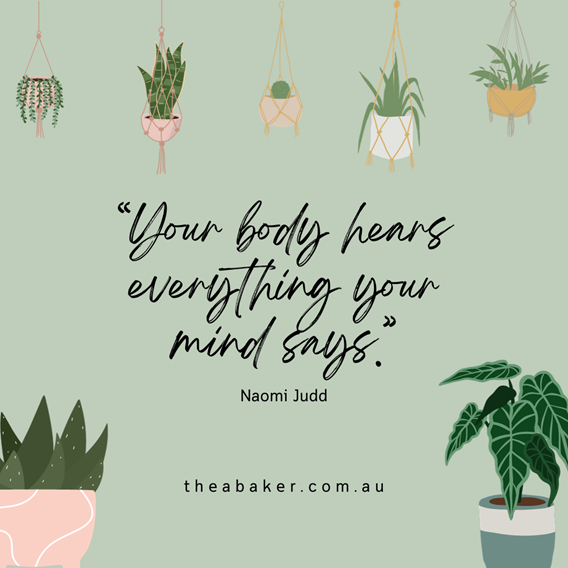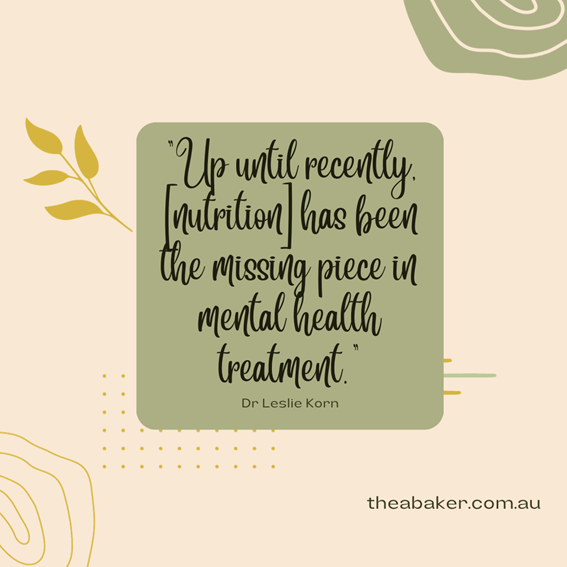Holistic Mental Health
Holistic Mental Health
There’s nothing I like doing more when I’ve got some time off than catching up on my favourite podcasts, finding new ones and truly getting knee-deep in some new research (I can’t help it, I’m just curious by nature). And because my brain just loves researching information and making connections to things, I love to share this new-found information with other people – just ask my kids, it can get pretty annoying for them! One of the purposes of this blog is to help make evidence-based information that’s relevant to mental health and wellbeing easy to access and to hopefully inspire people to become curious too. And this is related to how important I feel that it is for us to be truly informed consumers of our mental health and wellbeing care and support.
The (western) model of medical care relies on us trusting that our medical doctors are the experts in their field, and that they understand our symptoms, environment, and needs well enough to apply that expertise to our health and wellbeing. The system doesn’t lend itself well to patient’s being the expert. But I feel really strongly that we hold an awful lot of wisdom as patients (clients) that is discounted or ignored. This is part of why I feel we need to be really well informed, so that we can have robust discussions about decisions that impact our wellbeing. Fortunately, we have access to so much information today – thanks Google. It’s just hard sometimes to know what we should trust and how it might apply to us – not everyone likes reading science journals on their Christmas holidays!

That’s all a long-winded introduction to this week’s blog which is hopefully going to be a collection of evidence-based topics (and associated additional sources of material for your own research) that support our mental health and wellbeing. In some instances it might actually be easier to navigate some of these subjects than it is to address some of the old trauma or underlying reasons behind our mental health condition(s) and sometimes it’s important that we attend to these things because they’re exacerbating or impacting our underlying mental health to such an extent that we can’t deal with those issues before we’ve provided for a more settled, stable bedrock of wellbeing. All of these topics are inter-connected and impact one another so making a positive change in one area will positively impact the others. And, in order to live whole-person well lives, we need to attend to all of them, so often it’s a matter of prioritising, which is something that you and you therapist should be doing collaboratively.
- First up we have SLEEP. Arguably one of the most fundamental considerations for our health and wellbeing. I often heard saying that if we don’t have good (enough) sleep, we will really struggle to attend to all the other issues that we need to unpack in therapy. Did you know that if you have a disturbed night’s sleep you will process food (the same food) differently than you will on a day when you are well rested? (See: The Diary of a CEO podcast episode for a full explanation). The quality of sleep impacts how we cognitively manage life, it impacts how our physical body heals itself, impacts how much energy we have to move our bodies and our emotional states. My favourite podcasts on sleep are:
- Huberman Lab ‘Master your sleep’ and here’s an extra bit of information from Prof Huberman in a newsletter form.
- Huberman Lab with Dr Matt Walker ‘The science and practice of perfecting your sleep’.
- Dr Matt Walker’s book, ‘Why we sleep’.
- Secondly there’s NUTRITION. Have you ever considered that our brains are working 24/7, whether we’re asleep or awake it’s busy processing away. Unsurprisingly it functions much better when it’s fuelled by high quality foods that are rich in vitamins, minerals, and antioxidants. However, when we eat diets that are high in refined sugars, low in fibre and highly processed foods it has a negative impact on the brain, along with challenging in our ability to regulate insulin, increasing inflammation and oxidate stress. Recent studies into the role of our gut microbiome on our health – including our mental health – has further added to the story. Given that 95% of our serotonin (the neurotransmitter that helps regulate sleep and appetite, mediate moods and inhabit pain) is produced in our gut, having a healthy, diverse and robust gut microbiome is vital. Here are a few of my favourite sources of information if you want to know more:
- Two episodes from the Feel Better Live More podcast, firstly Prof Felice Jacka ‘Diet and depression’ and Dr Chris van Tulleken ‘Eat real food’.
- The book GUT by Giulia Enders
- The Diary of a CEO episode with Prof Tim Spector ‘The Food Doctor’.

- Last up today there’s PHYSICAL ACTIVITY. There are numerous studies that provide evidence demonstrating that physical body can help reduce anxiety, depression, and negative mood by improving self-esteem and cognitive function. Exercise has also been shown to reduce symptoms including low self-esteem and social withdrawal. There are also a few other significant aspects of what’s involved when we exercise. Depending on what kind of movement we engage in, we might be developing and mastering a new skill which helps develop a sense of mastery and self-efficacy, which helps builds self-esteem, increasing life satisfaction and thus improving mood. If we do something as part of a group – structured exercise or team sports – there’s also the additional benefits of social connection.
- Feel Better Live More podcast with Brendon Stubbs ‘Movement improves mental health’.
- Psychiatry podcast, episode 142: ‘Exercise as a drug for mental health and longevity’.
If you have decided that 2024 is the year that you start therapy, and you’d like to do that in a truly holistic way, we have a team of therapists at Thea Baker Wellbeing and we have IMMEDIATE availability – please reach out to us at: hello@theabaker.com.au / 03 9077 8194.
